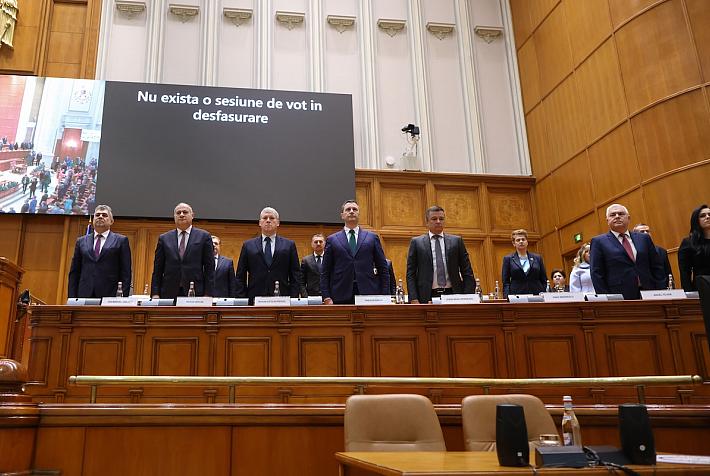PA Focus October: Essential Insights for Public Affairs & Legal Professionals

This article explores Romania’s ambitious fiscal reforms outlined in the National Structural Budgetary Plan for 2025-2031, aimed at reducing the budget deficit and enhancing tax administration. Covering tax policy shifts, minimum wage reforms, and digital transformation efforts, it provides essential insights for public affairs and legal professionals navigating these impactful changes shaping Romania’s economic future.
Highlights of October
Fiscal Reforms on the Horizon
Romania’s National Structural Budgetary Plan 2025-2031 addresses the budget deficit through major tax and fiscal reforms. Key actions include reducing tax incentives, introducing environmental taxes, phasing out construction tax benefits by 2025, and automating property assessments by late 2025. The plan’s goals are to boost fiscal revenues, streamline the tax system, and reduce tax avoidance while adjusting tax rates and deductions. Although “adjustments” remain undefined, there’s no explicit mention of tax hikes—likely due to the election period. These changes aim to bring predictability and stability to Romania’s fiscal landscape over the next seven years.
Tax Administration and Digital Transformation
Romania’s tax reform focuses on digitization with systems like e-Factura and e-VAT, alongside legislative changes to boost tax collection and reduce VAT gaps. By Q1 2025, the microenterprise tax threshold will lower to €88,500, with fewer deductions and stricter rules on tax base splits, enhancing compliance and fiscal revenue.
Minimum Wage Increase and Labor Taxation
The government’s plan includes a minimum wage reform that links wage adjustments to inflation and productivity, ensuring wages do not fall below 45% of the average. If needed, additional increases will align with GDP growth per worker. Other reforms focus on climate change in agriculture, investments in green transition, digitalization, and boosting industry competitiveness. Minister Boloș also stated that he has submitted the plan to the European Commission, arguing against further reductions in the microenterprise threshold, as it would not significantly boost state revenues.
PSD’s 2025-2028 Governance Program promises fiscal stability with unchanged income tax (10%), corporate tax (16%), and VAT (19%) rates. Property taxes and the micro-enterprise threshold stay at EUR 500,000. PSD proposes up to a 5% tax cut on lower wages, aiming for a EUR 1,300 monthly minimum salary by 2029, alongside incentives for young people.
Legislative Developments in Tax Exemptions
Prime Minister Ciolacu advocates limiting tax exemptions to specific projects for set durations, criticizing past practices of prioritizing electoral gains over state needs. He argues that Romania’s credibility and effectiveness are weakened by slow fiscal modernization and warns that pre-election tax breaks create unsustainable practices, stressing a restrained, sustainable approach.
The Biggest Inflation in the EU
Despite a decrease to 4.6%, Romania held the highest inflation rate in the EU for the seventh consecutive month, with September rates surpassing those of Ireland (0.0%), Lithuania (0.4%), and Italy (0.7%). Romania’s inflation at 4.8% led the EU, followed by Belgium and Poland. This prompted the National Bank of Romania to maintain its interest rate at 6.5%.
Romania Keeps its Sovereign Rating
S&P reaffirmed Romania's sovereign rating at BBB-/A3 with a stable outlook, citing moderate debt and growth prospects. Romania’s economy is projected to grow 1.6% in 2024 and nearly 3% on average from 2025-2027, supported by significant European funds from the Multiannual Financial Framework and the Recovery and Resilience Mechanism.
Future Perspectives
Will the NBR lower its Monetary Policy Rate?
The NBR’s final monetary policy meeting of the year is scheduled for November 8, marking the debut of its new board of directors. Despite inflation falling to 4.62%, uncertainties around government formation and fiscal plans may delay an interest rate cut by 0.25%, favoring a gradual approach. A 0.25% reduction, however, remains likely.
Minimum Wage Increase
The draft decision to set the minimum gross wage at RON 4,050 is expected to pass in early November. While promising relief through reduced taxes, the government may continue with incremental wage hikes that could strain small businesses. This approach, maintaining a flat tax rate, increases state revenue without easing employer costs.
Pay by Card without a Receipt
A legislative proposal in the Chamber of Deputies aims to remove the obligation for businesses to issue receipts for card payments, receiving favorable amendments. Customers can still request a receipt, and vending machines solely accepting card payments would not need a cash register. This proposal is likely to pass in an upcoming plenary session.
Conclusions
In conclusion, as Romania embarks on this ambitious fiscal overhaul, professionals in public affairs and legal consulting will play a crucial role in guiding clients through the landscape of tax reforms, labor adjustments, and legislative changes. With a focus on enhancing Romania’s fiscal health while balancing business needs, these reforms present a transformative yet demanding era for stakeholders in the Romanian economy.
Do you need a smarter solution to keep up with legislation, save time, and never miss an important update? Discover Issue Monitoring!
*This is native article supperted by Issue Monitoring.












